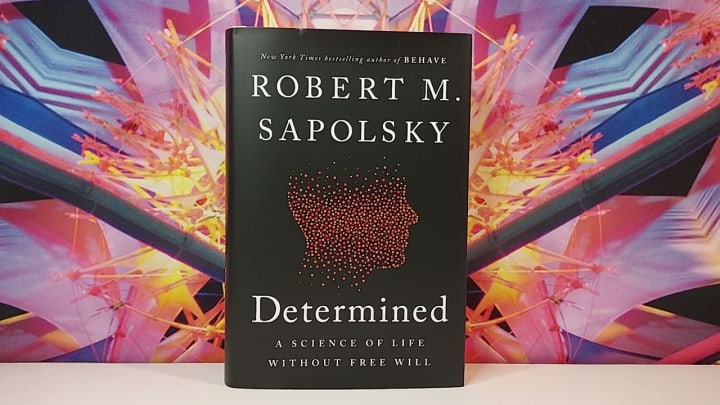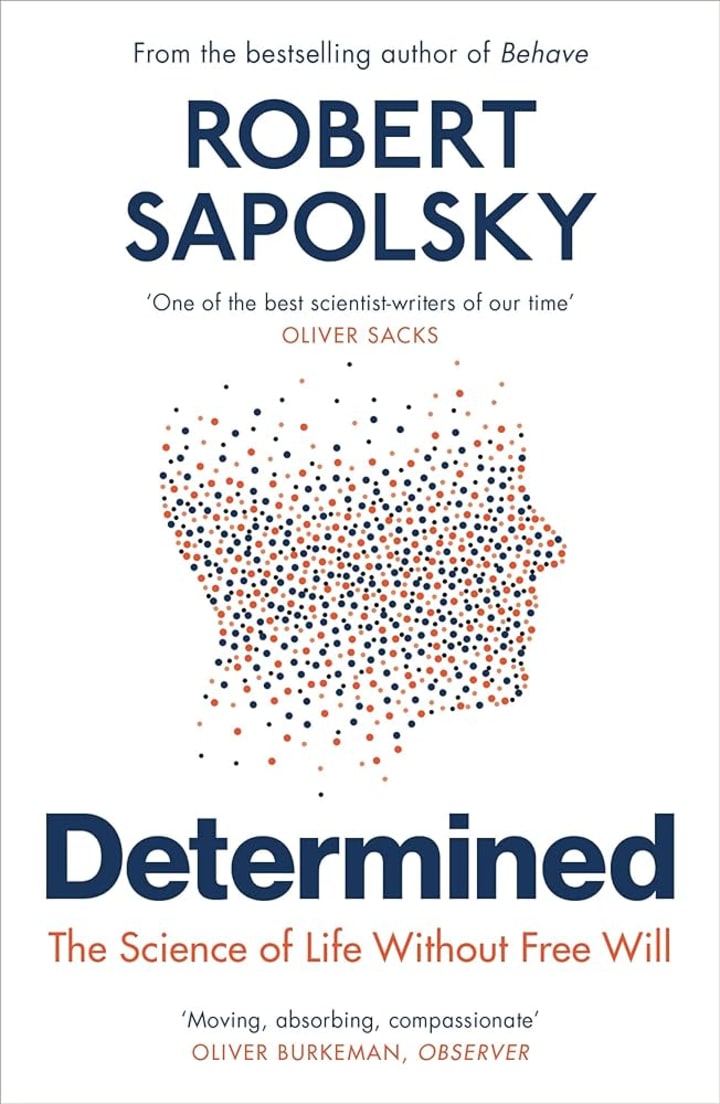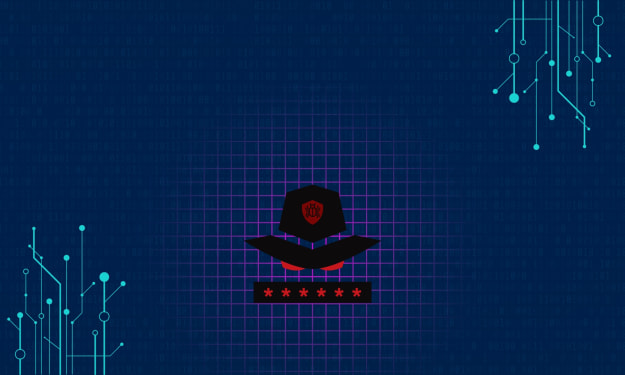Book Review: "Determined" by Robert Sapolsky
1/5 - shaky, ill-defined and requires more work...

Sapolsky has come into my field of vision now and again. The first time was during one of my MA classes in philosophy in which I learned that Sapolsky's reductive belief systems about free will and determinism are not accepted by the philosophy community because of the way they prescribe the supernatural to something like free will and take the same level, though opposing stance, as the shaky premise that the butterfly effect relies on.
I would not come across Sapolsky again until I once came across some scientists discussing this same shaky premise from the point of view of science rather than technology. In a similar way to how Matthew Walker writes well but manipulates the topic of sleep and health in his book Why We Sleep, Sapolsky manipulates determinism and free will in order to tell a threadbare story about why free will doesn't exist.

First of all, it probably is not a good idea to treat free will as if it is some supernatural or magical concept. Free will has been manipulated by the author to have no actual structure. This is a mistake. There is always a framework for free will - does that make it predetermined? Probably. But you cannot possibly argue that just because there is a predetermined nature to actions that the very act of free will doesn't exist just because something else does. Taking determinism and free will as opposites is a fault of the text. But the one thing he tries to do is now that he has defined free will as something outside of physical rules - he spend a long time disproving its existence.
His arguments on morality end up therefore, being shaky at best because if this aspect of free will does not exist and therefore, every intent is predetermined - then how can we possibly know the true nature of morality in a human being? How do we know that this morality is not also 'intended' in both good and bad situations and therefore, it isn't real or authentic. And thus, it isn't morality. It doesn't make any sense without free will, but not free will in the magical nonsense that the writer describes it in.

One of the things I really didn't think was any good about this book is how the writer reductively treats the idea of human determinism in the same way a computer programmer may treat how AI makes choices. We are apparently who we are because of the decisions we make and the decisions that are predetermined around us and therefore, free will cannot possibly exist because free will is outside the deterministic realm. See that Sapolsky never entertains the fact that free will can actually exist within determinism and, too many philosophical viewpoints and even scientific ones - it actually does.
I think that one of the main issues of the book may have been that this author seems to define free will wrong. The definition of it here seems to be the one that hijacked the original meaning in the midst of the 20th century. If the author already believes that the world is governed by these physical laws and therefore, quantum states cannot exist, then of course if he were to prescribe a non-physical state to free will then therefore, in his own mind and via his own incorrect definition, it cannot exist.
The science of the book is well-researched and there are certain aspects that hold up the argument. Sapolsky takes us through colouring in squares on graph paper, looking at how many different possibilities there could be for the rows in which there are squares and how, row-by-row, we can somewhat predict what one of the future rows is going to be and how it will be coloured in. However, the argument is not the same as a real-life application of choices (a) and (b) and that is purely because the author is solely focused on tearing apart determinism and free will whereas in fact, it is accepted that they exist concurrently.

All in all, I think that the writer takes a strange hill to die on since they admit themselves that they are not well-versed in the topic of free will since most of their research in their subject has been on animals and not humans. I also think that this is an odd stance to take because it doesn't involve the critical thinking perspective that both things can be true at the same time. But the problem of misaligning free will as being the opposite of determinism and not a faction of it seems to take over the book. The chaos theory that the book discusses is also misaligned as being part of the shaky deterministic foundation that the author is trying to build. It is all a bit off altogether - it just seems like there has not been a lot of thorough research put into the book. It is very 'pop-philosophy' buttered over with the knife of 'I should know, I'm a scientist'.
About the Creator
Annie Kapur
200K+ Reads on Vocal.
Secondary English Teacher & Lecturer
🎓Literature & Writing (B.A)
🎓Film & Writing (M.A)
🎓Secondary English Education (PgDipEd) (QTS)
📍Birmingham, UK
X: @AnnieWithBooks
Enjoyed the story? Support the Creator.
Subscribe for free to receive all their stories in your feed. You could also pledge your support or give them a one-off tip, letting them know you appreciate their work.






Comments
There are no comments for this story
Be the first to respond and start the conversation.